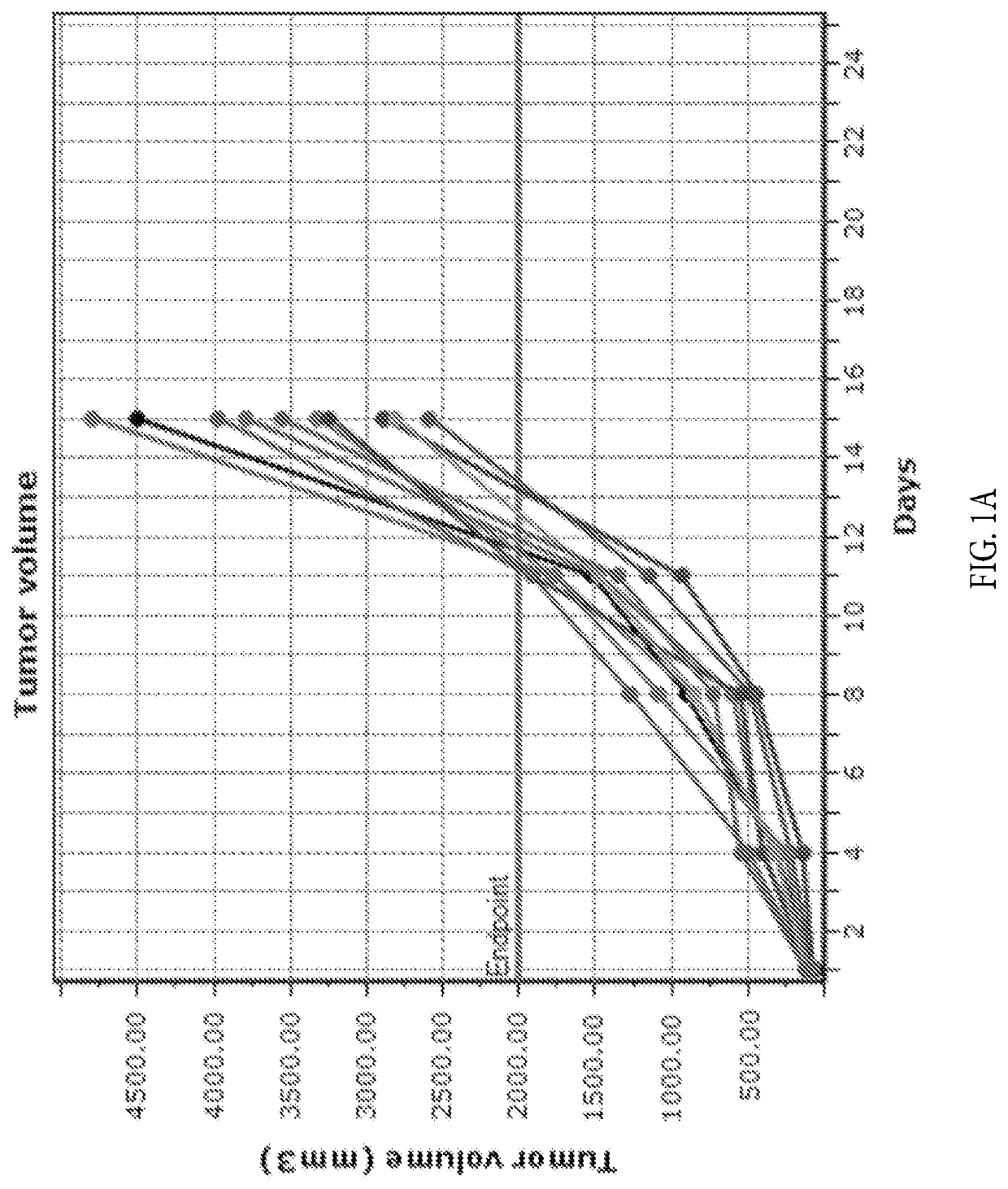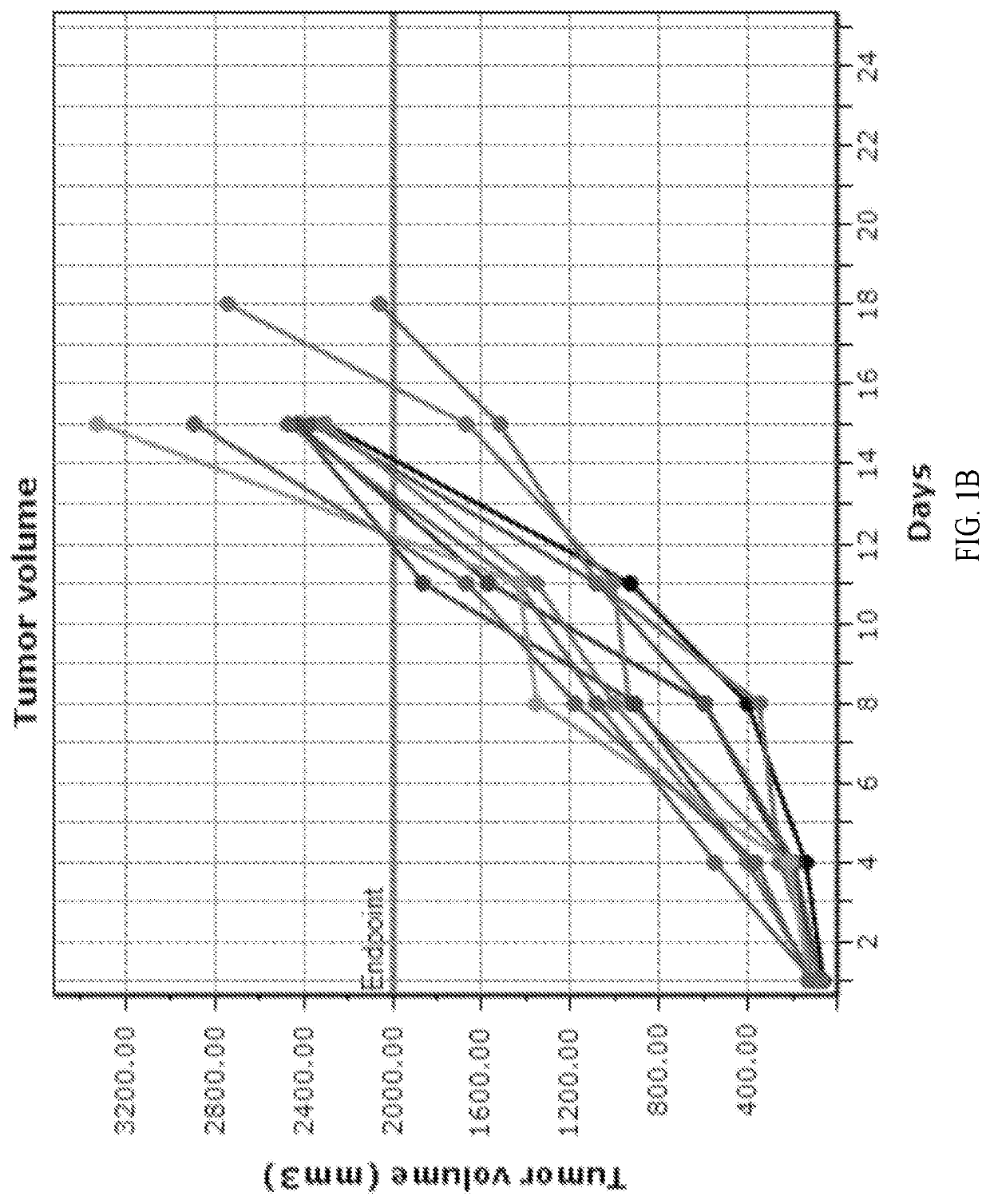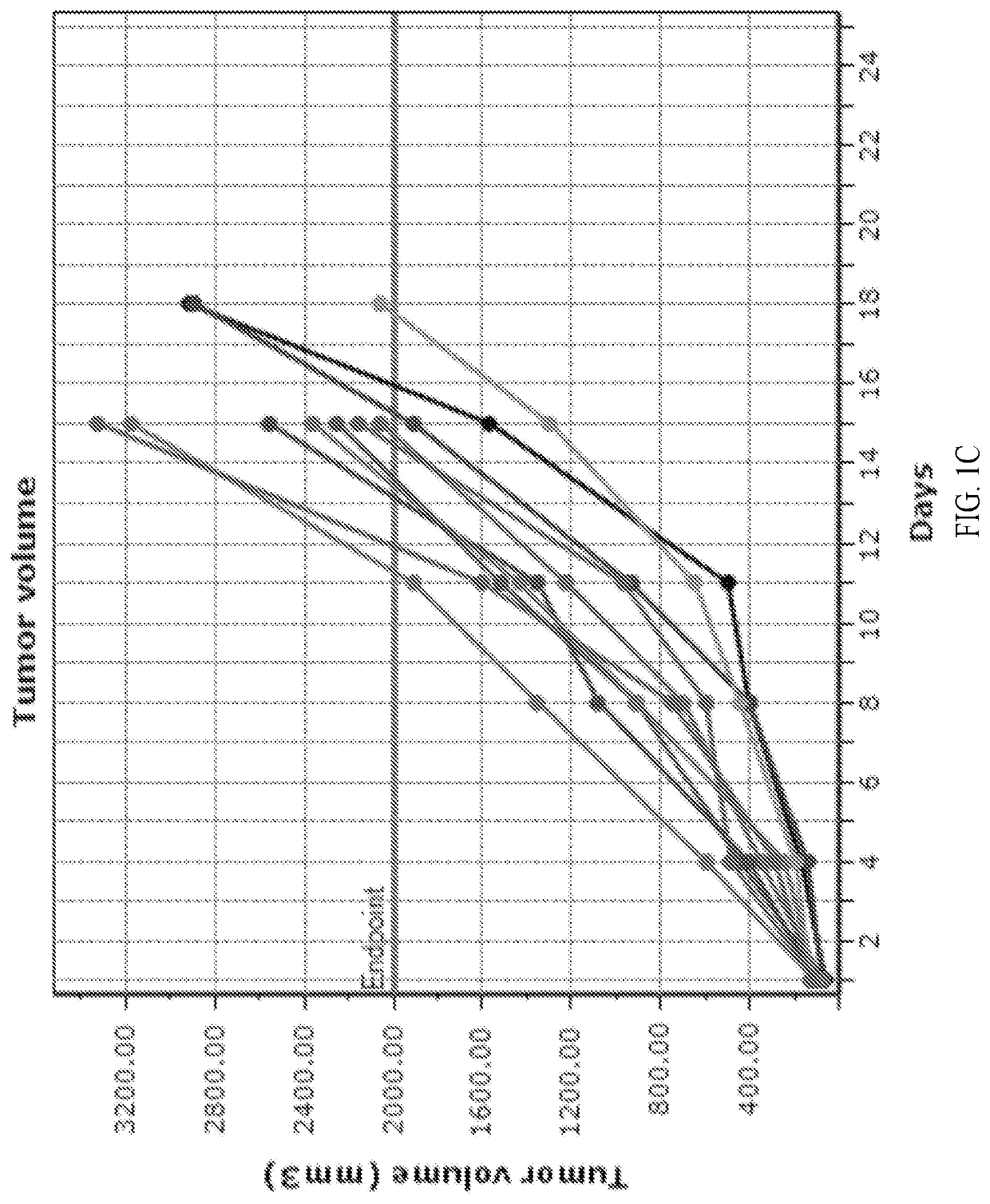Compositions And Methods For Enhancing Immunotherapy
a technology of immunotherapy and compositions, applied in the field of compositions and methods for enhancing immunotherapy, can solve the problems of skewing or suppressing immune responses, disadvantages of patients, limited immune responses, etc., and achieves favorable environment for immune cell activation, enhancing immune responses, and increasing metabolic fuels
- Summary
- Abstract
- Description
- Claims
- Application Information
AI Technical Summary
Benefits of technology
Problems solved by technology
Method used
Image
Examples
example 1
[0123]Three groups of female BALB / c mice with established subcutaneous CT26 tumors (n=10 / group, group mean tumor: 97 mm3) received formate (20 mg / mL) in the drinking water and intraperitoneal (i.p.) anti-PD-1 treatment (5 mg / kg, twice a week for two weeks), alone and in combination. An untreated group served as the control group for efficacy analysis. One group received the combination of anti-PD-1 (i.p., 5 mg / kg, twice a week for two weeks) and anti-CTLA-4 (i.p., 5 mg / kg on day 1, 2.5 mg / kg on days 4 and 7) antibodies as a positive control. The study endpoint was a tumor volume of 2000 mm3 or 45 days, whichever came first. The study was terminated on day 32 when all tumors in formate treatment groups reached 2000 mm3. Tumor measurements were taken twice weekly and animals exited the study upon reaching the tumor volume endpoint. Overall efficacy was determined from percent tumor growth delay (% TGD), the percent increase in the median time to endpoint (TTE) for a treatment group co...
example 2
[0126]Modulation of T cell activation and survival by formate. Naïve CD8+ T cells were isolated from mouse spleen. Cells were activated at a cell density of 106 cells / mL using plate-bound αCD3 / αCD28+100U / mL IL2 in RPMI containing 10% FBS. The effect of addition of 1 mM formate to the media was tested. 1 mM formate enhanced size at day 1 post activation, an early measure of T cell activation, from 9.5 μm to 10.2 μm. In addition, the extent of cells showing cell surface activation markers (CD25+, CD69+) was increased from 78% to 88%. Formate also reduced the concentration of the reduced pyridine nucleotides cofactor NADH by 1.8-fold (p<0.005), a favorable change for enabling T cell function in a hypoxic tumor microenvironment. In growing CD8+ T cells, generated as above but allowed to start proliferating for several days before addition of formate, formate increased cell viability from 90% to 95% (i.e., decreased dead cells from 10% to 5%).
example 3
[0127]CAR-T cells actively metabolize lactate. CAR-T cells comprising a CAR targeting mesothelin were grown in culture, without (non-transduced, NTD) or with expression of the CD28ζ or CD28ζ and NOX from Lactobacillus brevis (LbNOX) (UniProtKB Accession Number Q8KRG4). The medium composition was RPMI (10 mM glucose, 2 mM glutamine), 1 mM pen strep (penicillin streptomycin), 1 mM hepes, and 10% dialyzed serum. This medium was supplemented with 20 mM 13C3-lactate overnight. The contribution of lactate carbon to acetyl-CoA and HMG-CoA was measured by LC-MS. As shown in FIGS. 3A and 3B, CAR-T cells intrinsically actively take up and utilize lactate.
PUM
| Property | Measurement | Unit |
|---|---|---|
| molecular weight | aaaaa | aaaaa |
| concentration | aaaaa | aaaaa |
| time | aaaaa | aaaaa |
Abstract
Description
Claims
Application Information
 Login to View More
Login to View More - R&D
- Intellectual Property
- Life Sciences
- Materials
- Tech Scout
- Unparalleled Data Quality
- Higher Quality Content
- 60% Fewer Hallucinations
Browse by: Latest US Patents, China's latest patents, Technical Efficacy Thesaurus, Application Domain, Technology Topic, Popular Technical Reports.
© 2025 PatSnap. All rights reserved.Legal|Privacy policy|Modern Slavery Act Transparency Statement|Sitemap|About US| Contact US: help@patsnap.com



